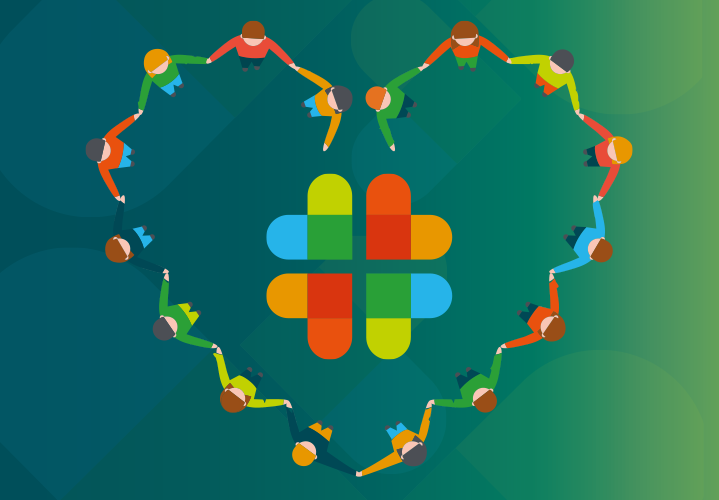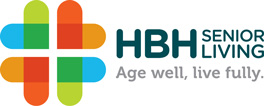
The 7 Domains of Wellbeing® and why they matter
A question that has long challenged those committed to changing the culture of aged care is …. ‘What makes life worth living, and how do we measure it’?
The Eden Alternative is a philosophy of care that seeks to change how we care for older people, promoting environments that foster community and connection rather than loneliness, meaningful activity rather than boredom; and self-reliance and caring for others rather than helplessness.
Eden contends that getting older and living with changing abilities need not be about decline and despair, but instead, a chance to soar to new heights of human growth and awareness. It also advocates for a shift from ‘institutional’ models of care to relationship directed values and practices that put the person first.
“Through this approach, decisions and actions around care honour the ‘voices and choices’ of our residents,” explains Juliette Tuckey, HBH CEO. “The ultimate goal of culture change is wellbeing for everyone – all care partners including residents, staff, families, the organisation, and ultimately the community.”
So, what is wellbeing?
Wellbeing can be simply defined as ‘a contented state of being’. While happiness is a human emotion that comes and goes, wellbeing evolves and develops over a lifetime, deepening as we grow into our full potential as human beings.
The founders of the Eden Alternative believe that wellbeing is the path to a life worth living – and the ultimate outcome of a human life. “Wellbeing is a much larger idea than either quality of life or customer satisfaction,” said co-founder, Dr William Thomas. “It is based on a holistic understanding of human needs and capacities. Wellbeing is elusive, highly subjective, and the most valuable of all human possessions.”
“Wellbeing is a human right,” elaborates Juliette. “The Eden Alternative provides an approach to care that supports the whole person, upholds their right to a life full of purpose, connection, empowerment and possibility, regardless of age or changing abilities.”
The Eden Alternative identifies seven primary Domains of Wellbeing®, which are the seven fundamental aspects of personhood at the core of the Eden Alternative Framework – and the outcomes we aim to achieve by putting the Ten Principles of The Eden Alternative® into action.
> IDENTITY — being well known, having personhood, individuality, having a history
> GROWTH — development, enrichment, expanding, evolving
> AUTONOMY— liberty, self-determination, choice, freedom
> SECURITY — freedom from doubt, anxiety, or fear; safety, privacy, dignity, respect
> CONNECTEDNESS — belonging, engaged, involved, connected to time, place, and nature
> MEANING — significance, heart, hope, value, purpose, sacredness
> JOY — happiness, pleasure, delight, contentment, enjoyment
In this article, we explore the 7 Domains of Wellbeing® in more detail and demonstrate how they help us ensure daily life at HBH’s aged care home is more joyful, meaningful and connected.
Domain #1 – Identity
Identity is about being well known, having individuality, wholeness, and having a history. Traditional healthcare systems tend to strip away individuals’ identities, leaving them virtually unknown and vulnerable. It identifies people by their name, their disease process, what they need assistance with, or how their food is prepared and served.
Becoming well known is a hallmark value of The Eden Alternative. It means acknowledging our strengths and what we each have to offer. And it’s about bringing forth these strengths each day to celebrate each other’s unique individuality.
“A person’s identity, history, life, and sense of self are essential components of wellbeing,” explains Juliette. “When we use wellbeing as our frame of reference, the care plan becomes very individualised, focusing on strengths, preferences, goals and growth. Once we have a full picture of an individual’s identity, we know how to partner with him or her to highlight and strengthen his or her sense of individuality.”
Domain #2 – Growth
Growth is about development: enrichment, unfolding, expanding and evolving. While the institutional model of care centres on mitigating decline and disability, the person-directed model offers a radically different belief.
In a person-directed model of care, we come from the viewpoint that older people and their care partners should be given every opportunity to learn and grow. Everyone has the potential to be a ‘growth partner’ to someone else, including our residents. Good quality care enables growth, because people are able to thrive when they have good medical treatment and appropriate care.
“When we think about growth, we ask how is our care partner team working together to help one another to grow based on individual strengths and goals,” says Juliette. “What opportunities are we giving our residents to expose them to new life experiences and knowledge?”
Domain #3 – Autonomy
Autonomy is about liberty, self-governance, self-determination, choice and freedom. Simply put, to be autonomous is to be one’s own person and to be respected for one’s ability to decide for oneself, control one’s life and absorb the consequences of one’s own choices.
It’s easy to perceive good ‘caregiving’ as doing everything possible for a resident, but this can lead to learned helplessness and reduce individual choice. Principle Four of the Eden Alternative Philosophy reminds us that care is about giving as well as receiving – for everyone in the care partnership team – so that our residents have choice, and a voice.
“Many older people I speak to really want to have choice, spontaneity and autonomy, just as they did in their own homes,” says Juliette. “They want to feel independent, but when making decisions about care, families want to protect their loved ones too. So it’s about finding a balance.”
Domain 4 – Security
Security refers to freedom from doubt, anxiety, or fear; feeling safe, certain and assured; and having privacy, dignity and respect. This Domain is about ensuring that our commitment to safety doesn’t infringe our residents’ rights and choices. Eden Alternative co-founder, Dr Bill Thomas reminds us to ‘optimise’, rather than ‘maximise’, security in aged care.
“Our healthcare system tends to be risk averse,” says Juliette. “But to take away all risk and chances to make mistakes is to take away the right to be human. With more freedom comes more risk, such as going on a day trip or playing a sport, but with that comes more independence, joy and fulfilment.”
“Security is also about uncovering any anxieties and fears our residents may have, so that we can address them,” Juliette continues. “And importantly, it’s about protecting the dignity and privacy of our residents, and asking ourselves, “what does respect look like?”
Domain #5 – Connectedness
Connectedness is the state of being connected, alive, belonging, engaged and involved; connected to the past, present and future, to personal possessions, to place and to nature.
Many studies have shown the physical and emotional benefits of staying connected with loved ones and with one’s environment. Connectedness is about being in meaningful relationships with others, being surrounded by things that have personal meaning for us, and being a part of something that is bigger than ourselves. It means knowing our history, and looking forward to our future.
“During our lives many connections can be lost – we retire, spouses and friends die, children, friends and neighbours move away, we don’t get out as much – all of these things leave us at high-risk for feeling disconnected,” say Juliette. “That can lead to loneliness, helplessness, and boredom as many older people completely disconnect from their physical and social environment.”
“Opportunities for connection shouldn’t stop when a loved one goes into a home,” says Juliette. “Older people still need meaningful relationships with friends, whānau, children, animals and activities – not just occasionally, but regularly.”
Domain #6 – Meaning
Meaning is about feeling significant, and having heart, hope, value and purpose. The traditional, medical model of aged care strips away meaning in many different ways. A person-directed approach infuses meaning into every corner, act and relationship, so that all care partners share in a life worth living.
“Creating meaning in life is wrapped up with having purpose and feeling valued,” says Juliette. “At HBH that manifests in giving our residents opportunities to be involved in daily life, whether it’s helping another resident, or organising an event. For some residents, meaning can be found in their family, faith, pets, or hobbies such as gardening.”
“The Eden Alternative framework shows us how developing empowering relationships with people of all ages, and having a thriving habitat where people are valued, can provide on-going opportunities for meaningful contributions and engagement.”
Domain #7 – Joy
Joy is a short, simple word that describes the best, most elusive dimensions of human experience – pleasure, delight, contentment and enjoyment.
However, joy is both deeper and more encompassing than happiness. Moments of joy often catch us by surprise – they can’t be scheduled, structured or commanded into existence. It’s through having deep, rich and meaningful relationships with others that we can discover ways to recognise and celebrate moments of joy when they occur.
“Bringing joy into aged care is about creating opportunities where fun and spontaneity can happen,” says Juliette. “Routines are great but when every day is the same, life can lack the spontaneity and variety we once enjoyed. It’s also about learning what gives joy to each resident, and encouraging everyone to share stories about the fun and meaningful moments in their life. At HBH, we aim to foster an environment where the energy of the staff and others who are part of our care community enriches the lives of our residents.”
Identity, growth, connectedness, security, autonomy, meaning and joy: these seven Domains add up to the ‘X factor’ that makes daily life at HBH so special and ensures that our residents truly can age well and live fully.
“We aren’t just physical bodies that need fixing. We are WHOLE human beings. We need connection, a sense of purpose, to have our voices heard and our choices honoured, and to keep learning and growing, no matter our age or changing abilities.” – The Eden Alternative
